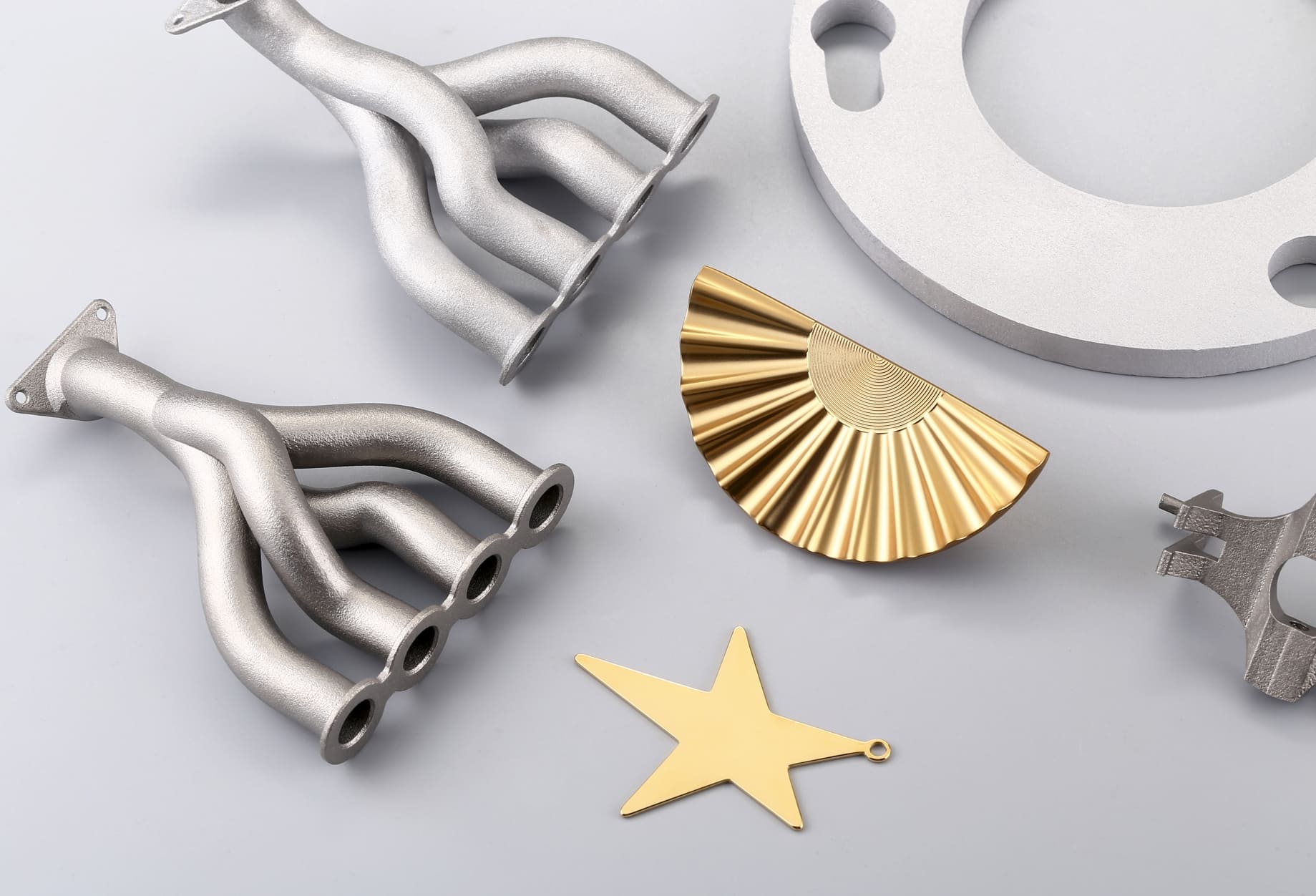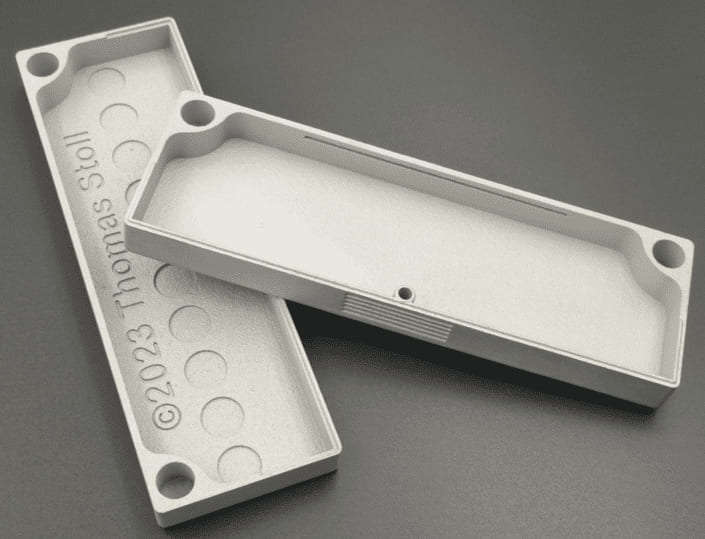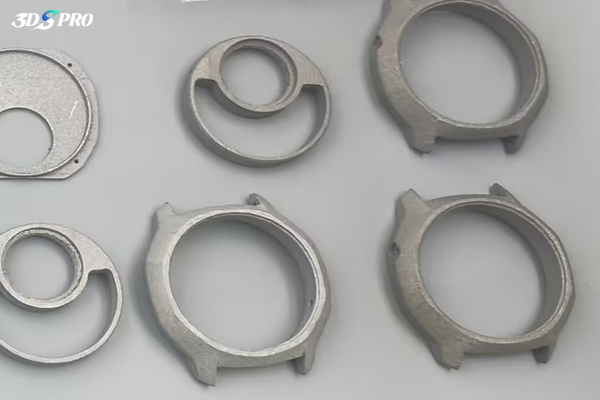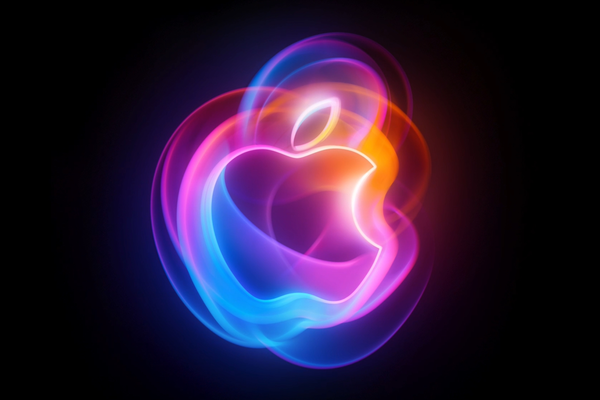Apple Brings 3D Printing Titanium to A Mass Market Wearable
The launch of the Apple Watch Ultra 3 marks a watershed moment in consumer electronics manufacturing. For the first time, a global tech giant has integrated 3D printed titanium into a high‑volume, mass‑market wearable, which is a move that bridges the gap between aerospace‑grade engineering and everyday consumer products.
It’s a statement that 3D printing has matured to the point where it can meet the exacting standards of a brand known for precision, durability, and design excellence, at a scale of millions of units per year.
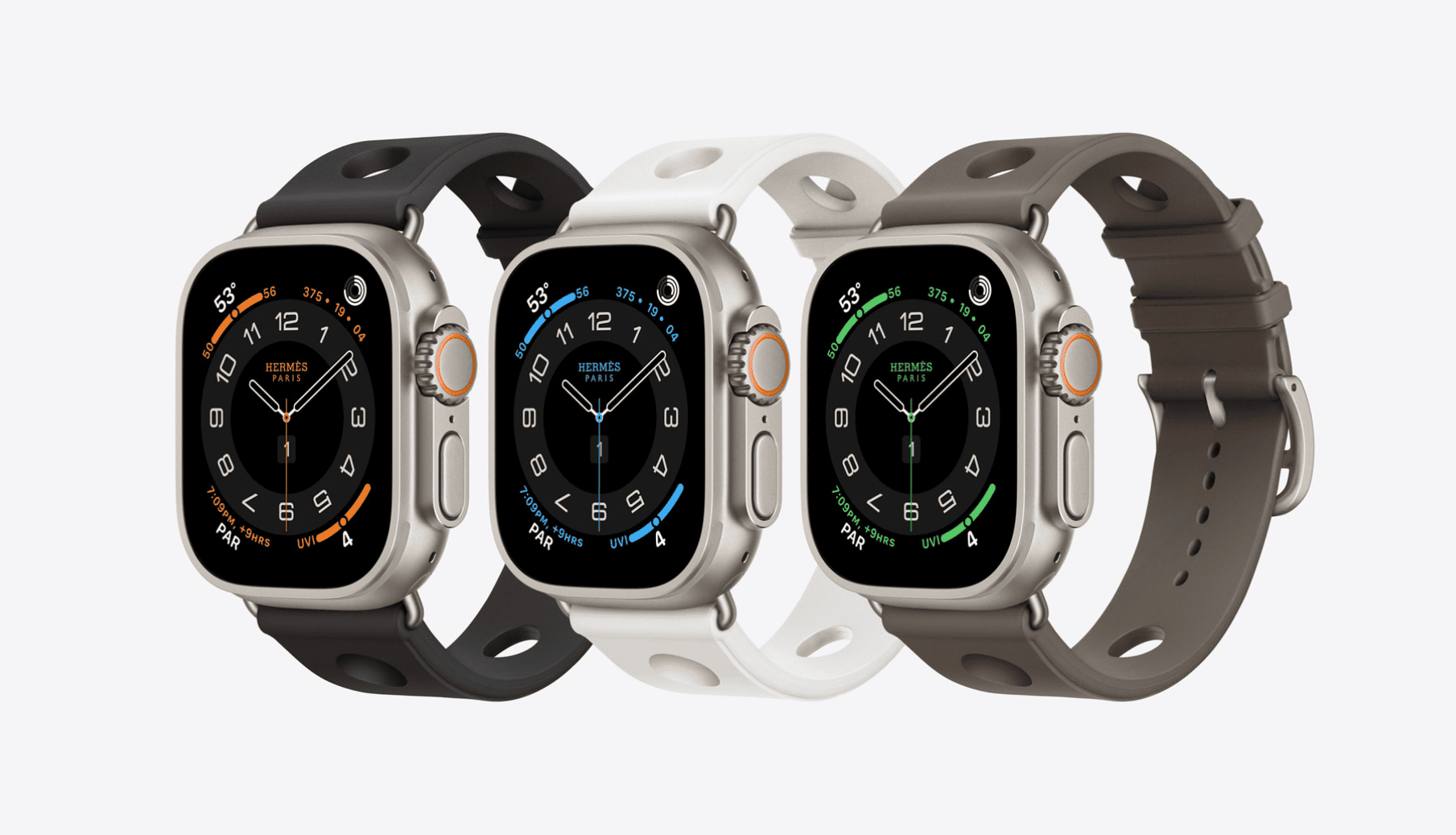
Image Source: Apple
From Aerospace to Your Wrist
Titanium has long been the material of choice in industries where failure is not an option, such as aerospace, motorsports, deep‑sea exploration, and high‑end medical implants. Its exceptional strength‑to‑weight ratio, corrosion resistance, and biocompatibility make it ideal for extreme environments, from the vacuum of space to the depths of the ocean.
In aerospace, titanium is used for critical load‑bearing structures in aircraft and spacecraft, where every gram saved translates into fuel efficiency and payload capacity. In motorsports, it’s prized for components that must endure high stress and heat without deformation. In medical applications, titanium’s biocompatibility allows it to integrate seamlessly with the human body in implants and prosthetics.
However, these advantages come at a cost. Titanium is notoriously difficult and expensive to machine. Traditional CNC milling often wastes up to 90% of the starting billet, with chips and shavings that must be recycled at additional expense. The hardness of the material also increases tool wear, slowing production and raising costs.
3D printing changes the equation. Building parts layer‑by‑layer from titanium powder enables near‑net‑shape production, drastically reducing waste and machining time. It also unlocks design freedoms impossible with subtractive methods, such as internal lattice structures, integrated channels, and complex geometries that improve performance without adding weight.
Until recently, titanium 3D printing was largely confined to low‑volume, high‑value applications where cost was secondary to performance. Apple’s decision to bring this capability to a wearable device signals a new era where aerospace‑grade materials are no longer confined to specialist industries:
• It proves that titanium 3D printing can meet consumer‑grade surface finish and dimensional tolerances at scale.
• It demonstrates that the economics of 3D printing can work for millions of units, not just hundreds.
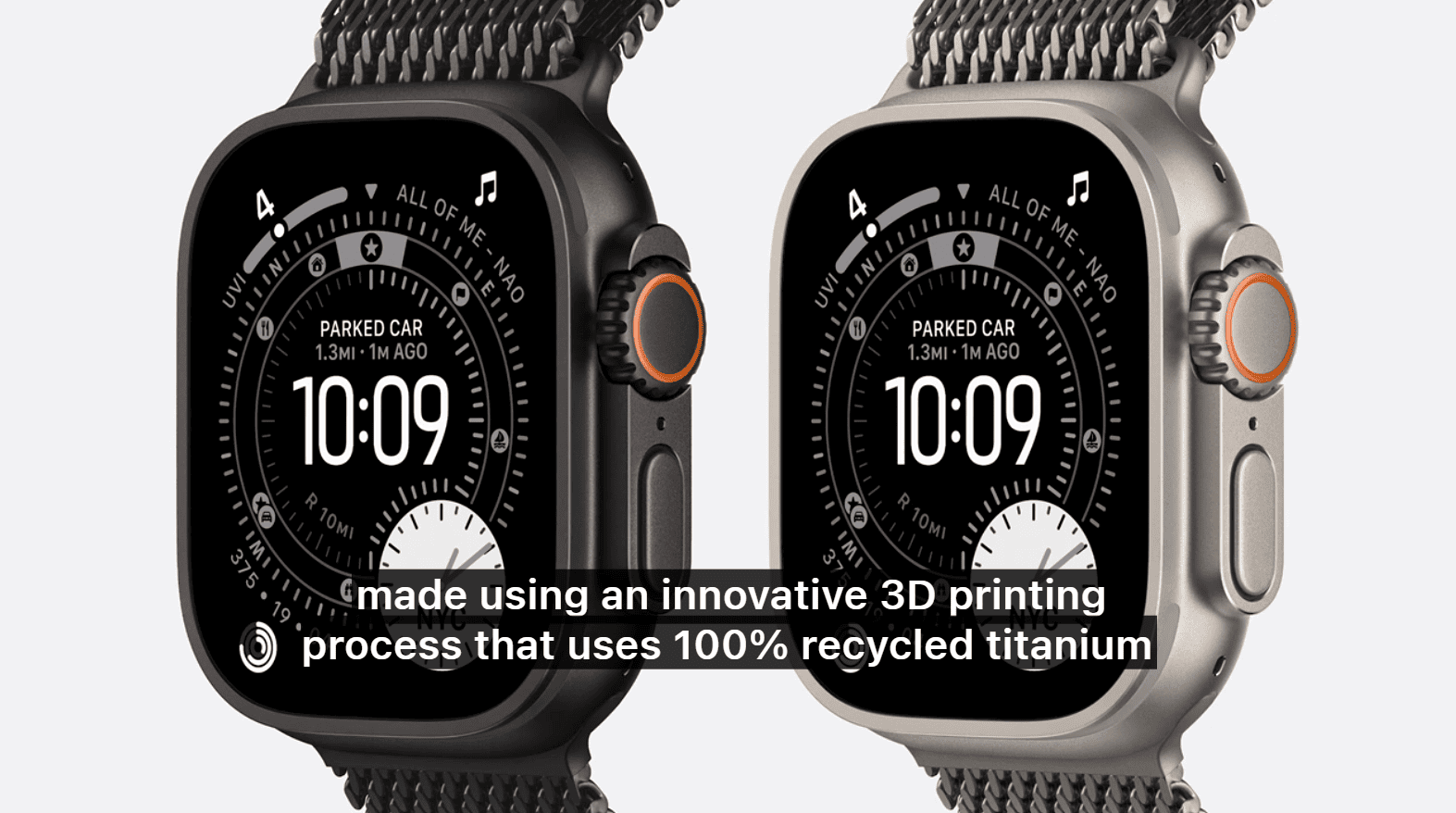
Image Source: Apple
Inside the 3D Printing Process
While Apple has not disclosed its exact production method, industry analysis suggests the Ultra 3 case is likely produced using Laser Powder Bed Fusion (LPBF). Both methods allow for high precision, excellent mechanical properties, and the ability to integrate multiple functional features into a single part.
The process likely involves:
• Powder preparation with aerospace‑grade Ti‑6Al‑4V alloy.
• Layer‑by‑layer fusion to form the case geometry.
• Post‑processing, such as Hot Isostatic Pressing (HIP) to eliminate porosity, CNC finishing for critical surfaces, and surface treatments for aesthetics and durability.
At 3DSPRO, we apply similar titanium 3D printing workflows for clients in aerospace, medical, and high‑performance consumer goods. Our in‑house LPBF systems and precision post‑processing capabilities enable us to deliver titanium components that meet the same demanding tolerances seen in the Ultra 3, whether for a single prototype or a scaled production run.
Engineering the Ultra 3 Case for Strength, Weight, and Precision
The Ultra 3’s titanium case is not simply a cosmetic shell. It’s a structural component designed for rugged outdoor use, water resistance, and integration with advanced sensors.
Key engineering considerations likely include:
• Lightweighting: Internal lattice structures reduce mass without compromising strength.
• Functional integration: Antenna cutouts, sensor housings, and mounting points are built directly into the printed geometry.
• Tolerance control: Critical for sealing, impact resistance, and long‑term wearability.
Breaking the Volume Barrier in Metal 3D Printing
Scaling titanium 3D printing to millions of units is no small feat. It requires:
• High‑throughput systems such as multi‑laser LPBF machines.
• Automated powder handling to maintain consistency and reduce contamination risk.
• In‑process monitoring to ensure every part meets spec.
• Streamlined post‑processing to handle large batches efficiently.
At 3DSPRO, we’ve developed scalable titanium 3D printing solutions that address these same challenges. From automated depowdering to batch HIP processing and robotic finishing, our workflows are designed to maintain aerospace‑level quality while meeting aggressive production timelines, making us a trusted partner for companies looking to bridge the gap between prototype and mass production.
Greener, Leaner Manufacturing with 3D Printed 100% Recycled Titanium
Apple’s adoption of 100% recycled titanium powder for the Ultra 3 case is as significant as the engineering itself. It reflects a broader industry shift toward sustainable manufacturing, proving that high‑performance materials can be sourced and processed responsibly without sacrificing quality.
1. Material Efficiency
Traditional CNC machining of titanium can waste up to 90% of the billet. Additive manufacturing builds parts layer‑by‑layer, using only what’s needed, with unused powder recovered and reused.
2. Lower Carbon Footprint
Recycled titanium powder requires far less energy to produce than refining from ore, and when paired with renewable‑energy facilities, it greatly reduces the Ultra 3’s carbon impact.
3. Supply Chain Resilience
Using recycled titanium lessens reliance on volatile virgin material supply chains, supporting both sustainability and production stability.
4. Industry Precedent
The Ultra 3 proves sustainability and performance can coexist, offering a model for integrating recycled materials into premium products without quality loss.
5. Circular Manufacturing
3D printing supports a circular economy through on‑demand production, material reuse, and designs that extend product life.
The Apple Watch Ultra 3 is a proof of concept for the future of metal additive manufacturing at scale. It demonstrates that with the right design, process control, and supply chain integration, 3D printed titanium can move from niche applications to the wrists of millions.
3DSPRO’s titanium 3D printing services offer a direct path from concept to production. Whether you’re developing a single high‑performance prototype or preparing for full‑scale manufacturing, our expertise in DfAM, titanium 3D printing processes, and scalable post‑production ensures your parts meet the highest standards of strength, precision, and finish.
COMMENTS
- Be the first to share your thoughts!












